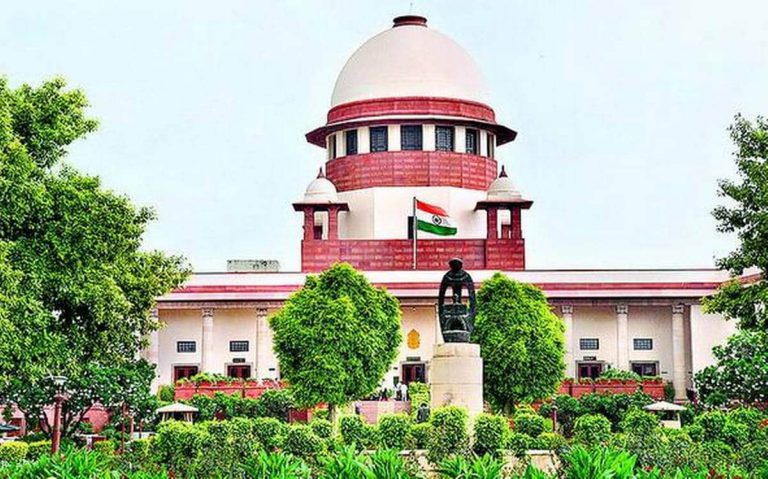SUPREME COURT UPHOLDS NCDRC’S VIEW ON UNJUSTIFIED DEMANDS OF A BUILDER
The #SupremeCourt of India in the matter of Experion Developers Pvt Ltd vs Pawan Gupta (Civil Appeal Nos. 3703-3704/2020) vide its Order dated 12-01-2021 affirmed the National Consumer Dispute Redressal Commission, New Delhi (“#NCDRC”) Judgment dated 26-08-2021 that #cancelled the #demand for excess area on offer of #possession.
Brief Facts:
The facts of the case involve one Mr. Pawan Gupta (the “Respondent”) had booked residential Flats in a Project of the Experion Developers Pvt Ltd (the “Appellants”) in 2012. The total sale consideration of the Flats was Rs.2,92,89,639/- under the Builder-Buyer’s Agreement dated 26.12.2012. The total sale consideration was later unfairly raised to Rs.3,10,48,232/-due to an increase in the sale area. The possession was to be given latest by 26.12.2016 however; the Appellants failed to handover the possession within the stipulated time period. As a result, the Respondent filed Complaints against the Appellants before the NCDRC. The Respondent prayed to restrain the Appellants from imposing any additional charge on account of the arbitrary increase in the price of the Flats.
The NCDRC heard the contentions raised by both the Parties and vide its Judgment dated 26-08-2021 observed and held as follows:
- The contention of the Opposite Party-Appellants herein that the Complainant-Respondent herein is not a consumer because he had purchased two Flats is not tenable.This now has been established that mere booking of more than one Flat does not take the Allottee out of the purview of the Consumer Protection Act.
- In respect of excess area, the justification given by the Opposite Party-Appellants was that on the basis of an internal report of the Architect the demand was made for excess area.The Opposite Party-Appellants herein failed to file any report or any other document to prove how they made a demand for the excess area.
- The NCDRC observed once the Original Plan is approved by the Competent Authority, the areas of Residential Unit as well as of the common spaces and common buildings are specified. The super area cannot change until there is change in either the area of the Flat or in the area of any of the common buildings or the total area of the Project (Plot Area) is changed.
- The NCDRC opined that the real test for excess area would be that the Opposite Party-Appellants should provide a comparison of the areas of the original approved common spaces and the Flats with finally approved common spaces/buildings. This has not been done in this case.The Commission said that this is a common practice adopted by majority of builders/developers which is an “Unfair Trade Practice”. It has become a means to extract extra money from the allottees at the time when allottee cannot leave the project as a substantial amount is locked in the Project and he is about to take possession.
- It further said that there is no harm in communicating and charging for the extra area at the final stage but for the sake of transparency the Opposite Party-Appellants herein must share the actual reason for increase in the super area based on the comparison of the originally approved buildings and finally approved buildings. The Commission pointed out that the idea is that allottee must know the change in the finally approved lay-out and areas of common spaces and the originally approved lay-out and areas.
- Therefore, until this is done, the Opposite Party- Appellants herein is not entitled to payment of any excess area. Thus, the Commission directed the Appellants to cancel the demand for excess area and send revised demand excluding excess area and without adding any new costs along with the offer of possession.
Being aggrieved by the said NCDRC Judgment dated 26-08-2021, the Appellants filed an Appeal before the Supreme Court of India. The Supreme Court vide its Order dated 12-01-2021 dismissed the Appeals and refused to interfere with the NCDRC Judgment dated 26-08-2021.
Editor’s Comment
A much needed Judgment that will help several oppressed buyers, who are forced to give in to unfair demands of builders at the stage of taking possession. The Judgment clearly distinguishes between genuine demand which is backed by a comparison between the approved plan and the final plan. In most cases the builders demands are inflated, arbitrary and illegal. This view of NCDRC’s, preventing builders from making arbitrary demands has been upheld by the Supreme Court and rightly so.
Lakshmi Vishwakarma
Senior Legal Associate
The Indian Lawyer & Allied Services
Edited by
Sushila Ram
Chief Consultant and Co-Founder
The Indian Lawyer & Allied Services





































Leave a Reply